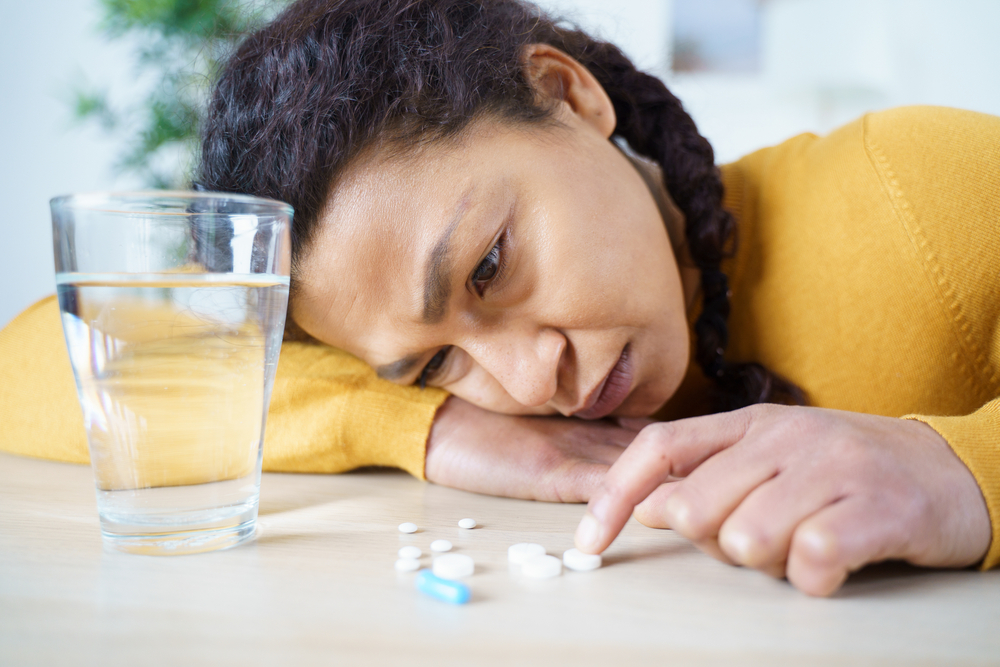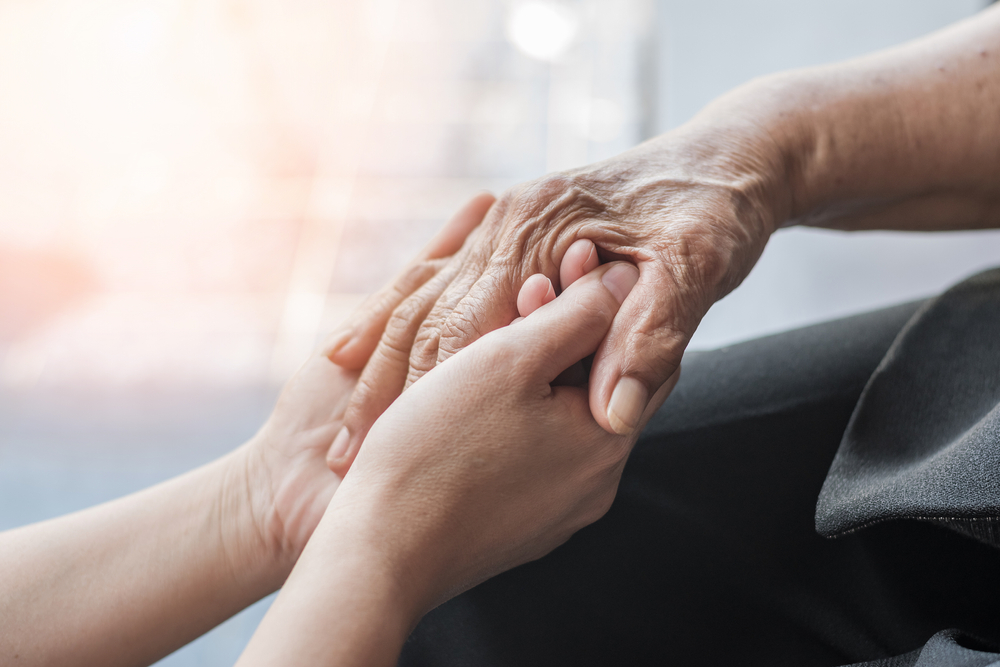Many individuals have developed a Klonopin addiction by simply adhering to the dosage recommended by their physician. This drug has the ability to obstruct specific receptors in the brain in order to minimize distress, tension, and unease. Once an individual becomes dependent on the medication, their brain is unable to generate emotions of serenity and tranquility without it. This is the reason why those addicted to Klonopin have a hard time giving up this drug and can’t operate in a typical way when they don’t have it.
In this article, we will discuss what Klonopin is, the side effects of abuse, withdrawal symptoms, and treatments commonly used to treat Klonopin addiction.
What is Klonopin?
Klonopin is a drug belonging to a group of medications known as benzodiazepines, which are primarily employed for dealing with seizures caused by epilepsy, and for the management of anxiety, especially the kind that is seen in panic disorder. This medicine is available in tablet form (0.5 mg, 1 mg, 2 mg) and as disintegrating wafers that have to be consumed orally.
Although it is commonly prescribed for treating anxiety disorders and seizure control, it is usually meant to be used as a short-term treatment method, as opposed to a long-term procedure, due to the potential for the body to develop tolerance to Klonopin. Klonopin is also used to treat schizophrenia in some, as well as Bipolar disorder, Tourette’s, and restless leg syndrome, among others. The US Drug Enforcement Administration (DEA) has reported that in excess of five million Americans aged twelve and above have taken a benzodiazepine such as Klonopin during their lifetime.
How Does Klonopin Work?
Klonopin binds to specific receptors in the brain called GABA-A receptors, which leads to an increase in the activity of GABA. This increase in GABA activity leads to a decrease in the activity of certain brain regions, including the amygdala and the hippocampus, which are involved in anxiety and fear responses. By reducing the activity of these regions, Klonopin can help alleviate anxiety and panic symptoms.
Klonopin also has anticonvulsant properties, which means it can help prevent seizures by reducing the activity of neurons in the brain that can become overactive and trigger seizures.
Klonopin vs. Xanax
Xanax, also known as alprazolam, is primarily used for the treatment of anxiety disorders. It works in a similar way to Klonopin by enhancing the effects of GABA in the brain. However, Xanax is generally considered to have a shorter effect duration than Klonopin, meaning that its effects tend to wear off more quickly.
Due to its wider range of medical uses, Klonopin is prescribed by a broader range of healthcare professionals, including psychiatrists, neurologists, and primary care physicians.
How Addictive is Klonopin?
Benzodiazepines carry a high potential for tolerance, dependence, and addiction. Out of all benzos, Klonopin (Clonazepam) is one of the most habit-forming. This anti-anxiety medication is especially attractive to those contending with substance abuse due to its fast-acting properties and extended half-life. Klonopin is absorbed into the bloodstream and reaches the brain within 60 minutes, and can stay in the body for up to three days, depending on the dose taken.
Clonazepam impacts the central nervous system by intensifying the effects of the chemical compounds in the brain that generate relaxation. People begin to become dependent on the medication to experience the heightened feelings of extreme contentment the drug brings. Over time, the body and brain become unable to create the calming chemicals naturally, pushing users to depend on clonazepam to get the strong calming effects they desire.
How to Avoid Becoming Addicted to Klonopin
If you’ve been prescribed Klonopin, here are a few things you can do to avoid becoming addicted and recognize any addictive urges.
- Follow your doctor’s instructions for taking Klonopin, including reading the medication guide and prescription label.
- Do not take more than prescribed or share the medication, as misuse can lead to addiction, overdose, or death.
- Swallow the tablet whole with a glass of water and inform your doctor if you experience an urge to take more.
- Your doctor will monitor your progress regularly and adjust doses based on your weight.
- Do not stop taking Klonopin abruptly, as it may cause life-threatening withdrawal symptoms.
- Store the medication away from moisture, heat, and light, and keep track of its use.
Side Effects of Klonopin Abuse
Klonopin can be beneficial for treating serious medical conditions like epilepsy. However, it is also a potent and commonly abused drug. Any use of the drug without a prescription is categorized as abuse. Taking larger doses of Klonopin than prescribed can negatively impact the central nervous system and bring about a short-lived feeling of happiness followed by a dreamy, inebriated state. Some people crush the Klonopin tablets into a powder and inhale them to heighten the effects of the medicine.
Side effects of Klonopin abuse and misuse include:
- Clumsiness
- Dizziness
- Slurred speech
- Constipation
- Euphoria
- Depression
- Agitation
- Aggression
- Nausea
- Slowed reaction time
Signs of Klonopin Addiction
Over time, as the body becomes accustomed to the additional amount of GABA that Klonopin produces in the brain, the rewarding and beneficial effects of the drug will start to reduce. This increased tolerance necessitates the user to take more of the medication frequently to achieve the original desired outcome.
It is during this period that addiction to Klonopin can start to manifest, as the abuser’s behavior and thought processes will alter, with more emphasis and focus placed on obtaining and consuming more of the drug. Signs that someone has developed a Klonopin addiction include:
- Intense cravings
- Continuing to use despite negative consequences
- Inability to quit
- Confusion
- Memory loss
- Hallucinations
- Slurred speech
- Neglecting responsibilities
- Aggression
- Psychosis
Klonopin Withdrawal
Abruptly ceasing to take Klonopin can have serious, possibly fatal, repercussions. Thus, it is not recommended to discontinue clonazepam without medical supervision Generally, a physician will reduce the dosage gradually to reduce the chance of uncomfortable and hazardous side effects. Correctly coming off benzodiazepines is vital for the protection of your well-being and comfort.
The intensity of symptoms experienced when one stops taking clonazepam varies depending on the person. Variables that can influence the intensity of the withdrawal symptoms include the amount taken, how long the individual had been using it, their physical condition, and if there are any other psychiatric disorders that are concurrent. Klonopin withdrawal symptoms may include:
- Nausea
- Headache
- Vomiting
- Hallucinations
- Anxiety
- High blood pressure
- Memory loss
- High blood pressure
- Impaired motor skills
- Depression
- Seizures
Klonopin Overdose
Many overdose cases that involve benzodiazepines also involve the concurrent use of other substances, like alcohol, narcotic painkillers, or antidepressants. Taking benzodiazepines like Klonopin alongside these drugs amplifies their effects and heightens the danger of overdose and death due to drug interactions and overdoses. An individual that has taken an excessive amount of Klonopin could experience a general loss of consciousness, possibly to the extent that they are unresponsive and hard to wake up. Other indications of a Klonopin overdose include:
- Clammy skin
- Confusion
- Coma
- Drowsiness
- Sleepiness
- Impaired coordination
- Slowed reflexes
- Sedation
- Shallow breathing
- Weak pulse
- Unconsciousness
What to Do if Someone Has Overdosed on Klonopin
Because of the dangers to one’s health, it is imperative to treat a Klonopin overdose as a medical emergency. Immediately calling 9-1-1 is the best way to ensure proper treatment is given as soon as possible. If not treated, the overdose of clonazepam could result in fatality, especially if combined with other substances such as alcohol or heroin.
After dialing 9-1-1, obey the operator’s guidance and stay calm. It is also important to inform the first responders of what the person ingested and provide them with all the drug containers, prescriptions and other drugs that were used.
It is imperative to seek medical assistance immediately in the event of a clonazepam overdose because there is a specific remedy that can reduce its side-effects. This medication is known as Flumazenil and is usually only administered intravenously in a hospital or healthcare facility. It is only qualified medical professionals that can determine if this drug should be used, so it is advisable to contact emergency services if an overdose is suspected.
Treatment for Klonopin Addiction
If someone has overdosed on Klonopin, they may need additional help for a drug addiction or usage issue. Regularly taking benzodiazepines can result in both physical and psychological reliance, which will likely require treatment in order to be overcome. Usually, addiction treatment includes a mix of medications and behavioral therapy. At the moment, there aren’t any government-approved drugs to cure a benzodiazepine addiction, but tapering the amount taken may be a suitable solution.
Trying to quit or regulate drug consumption without any professional assistance almost never works as substance abuse and addiction are very serious matters. For most people, the most favorable option is to look for professional aid to tackle substance abuse or addiction.
Detox
People who have been using Klonopin regularly will have most likely developed a physical dependence, meaning that they need to start off with a monitored medical detox program. This requires the help of a qualified doctor to ensure that the individual can get through the withdrawal period without experiencing major physical side effects. However, detox on its own is not sufficient to help the person to stop their Klonopin misuse.
Outpatient Rehab
In an outpatient setting, the individual remains in their home and goes to the treatment center during the week to consult with a specialist and take part in group therapy. People generally progress from an inpatient or residential program to outpatient treatment. However, if the Klonopin addiction is less intense and the chances of a problematic or complicated detoxification process are lower, successful rehabilitation treatment can start at one of these facilities. This choice might be suitable for individuals who have a stable support system in the home.
Inpatient Rehab
Inpatient treatment necessitates that you stay in the facility during the entire course of treatment. When you start this program, a team of professionals will create a plan designed to help you with your recovery. This plan can include individual therapy, group counseling, family counseling, sessions on avoiding relapse, and 12-step programs. Inpatient programs can be particularly advantageous if you have a serious addiction to Klonopin and require extensive monitoring and assistance.
Get Help for Your Klonopin Addiction in Asheville, NC
If you or a loved one requires professional treatment for a Klonopin addiction, help is available. There are measures that can be taken to avoid unhealthy habits and to assist those who are already having a hard time. If you or someone you know is struggling with addiction or mental health issues, it is essential to get professional help.
At Asheville Recovery Center, their specialists use a 12-step program and provide comprehensive rehabilitation that treats the mind, body, and spirit. Addiction is hard to manage on your own, but you do not have to. If you think that you or a loved one might be having difficulty, the experts at Asheville Recovery Center are prepared to provide assistance. Contact an addiction specialist today and take the first step toward your new, healthy life.









